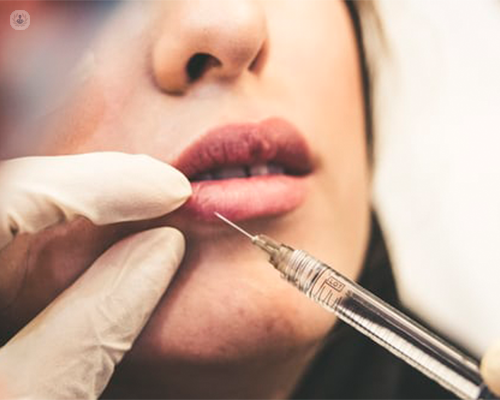Botox: benefits, risks, and results
Written by:We recently spoke to esteemed London-based dermatologist, Dr Ophelia Veraitch, to find out what exactly Botox is, how it is performed, and what the potential main associated risks could be.

What exactly is Botox?
Botulin toxin is a neurotoxic protein produced by the bacterium Clostirdium botulin. It works by temporarily disabling nerves so that the muscle cannot move. Botox helps to prevent wrinkles due to the fact that muscle movements lead to wrinkles.
In addition to aesthetics, it is also used in a whole range of medical conditions, with the main ones being:
- neck spasms (cervical dystonia)
- excessive sweating (hyperhidrosis)
- overactive bladder
- lazy eye
- chronic migraines
- crossed eyes
- twitching eyelids
- back pain
- depression
- Bruxism (excessive teeth grinding)
- premature ejaculation
How is it performed on one's skin?
It is injected into the muscle of the area in question with a fine needle. Your dermatologist will usually ask you to move the muscles in that area in order to establish the place that needs injecting.
What are the potential risks and complications?
Botox is relatively safe. The main associated risk is that you can get a brow drop, which occurs when the injection into the forehead is too low and one side of the brow drops, causing asymmetry. Asymmetry can also occur in the masseter lines.
Generally, however, it is a very safe procedure with very few risks when carried out by an experienced and qualified dermatologist. Long-term side effects are extremely rare.
What are the main benefits?
There are many benefits of Botox. Firstly, the aesthetic benefits are that it smooths out fine lines and wrinkles. It can also be used to prevent these lines from occurring in the first place. Whilst this is a physical benefit, it can also have hugely positive psychological impacts on a person's confidence.
How often will Botox be required in one's lifetime?
I don't recommend people to have it every three months from a young age because this will affect a person's physical appearance later in life, and they will develop the look of someone who has been over-injected. There is also the possibility of getting paralysed muscles from over injection. I generally advise when people begin to see the early signs of ageing, such as fine lines and wrinkles, that they have it once to twice a year maximum.
In terms of results, what can patients generally expect?
It takes two weeks to see the full effects of Botox, and if done properly, it shouldn't be obvious. The results are temporary and will wear off after three to four months.
Dr Ophelia Veraitch is an award-winning consultant dermatologist who specialises in Botox. If you are considering Botox, make sure you visit her Top Doctors profile to schedule a consultation with her.


